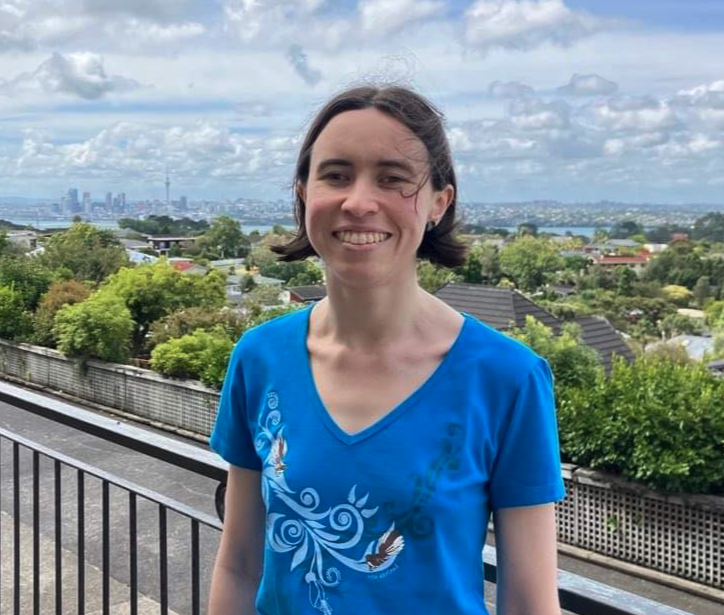The Power of Stories from the Margins: 5 Questions for Áine Kelly-Costello

This interview is part of a series of stories to get to know some of the humans who are connected to DRF’s work. Áine is a white/Pākehā disabled story-teller, researcher and activist living in Aotearoa New Zealand. They aim to weave an intersectional disability lens into their work for climate justice, migrant rights, political participation, decolonisation and independent living. They love making new connections within disability community. Áine Kelly-Costello is an individual donor to DRF. Find their work and contact details here.
1. As an activist, how do you use storytelling to advance change?
I’ve always been interested in learning from each other, especially within disability community. In my reporting and podcasting, I’ve had the chance to learn from so many people, most of them disabled, and they have generously let me share their perspectives. When the stories from the margins are out there more, and importantly told with care and with full consent, they open up space—space for those who resonate with those stories to feel less alone, but also, space for those who might never have considered such perspectives before to reorient their own thinking. The adage “the personal is political” is true and by getting the experiences of those on the margins out there, the case for political change is made stronger.
The adage “the personal is political” is true and by getting the experiences of those on the margins out there, the case for political change is made stronger.
2. How do you navigate the balance of sharing your own personal perspectives and experiences as a disabled person with preserving your energy and honoring boundaries?
I actually don’t share my day-to-day experiences as a disabled person super often in public. I will go for the systemic issues first and will really only use a personal example if I think it’s going to get the point across in a way that it wouldn’t otherwise. But often, it wouldn’t necessarily be me who is a good example of the stuff I want to highlight too. I’m (multiply) disabled and non-binary but I’m also white, have multiple citizenships, can communicate easily in lots of ways, have never lived in poverty and have many other privileges besides. Regarding boundaries, I tend to keep conversation to a polite minimum if strangers are asking especially prying questions. But I have a lot of disabled friends, most of my close friends are disabled, and I talk to them about how i’m doing all the time, in that trusted and safe space.
3. How does “Nothing About us Without Us” fuel your work and outlook on building toward an inclusive future?
I think it’s about disabled people believing in each other and supporting each other to create the sort of world we want. Both envisioning that within our organising and other fields of work, as well as “out there” in public.
I also think we shouldn’t cede our power by being too grateful for small wins—we should celebrate those ourselves, but it’s too easy for governments and other actors to get kudos for being so good(!!) to disabled people when the change has barely made a dent.
I also think we, disabled people, need to scrutinize that “us” closely, there’s always a danger that it centralizes too far to focus on what white disabled cis men from the Global North are aiming for. And let’s not forget about the perspectives of people with intellectual disabilities, people who use sign languages or alternate means of communication other than verbal speaking, and people with complex and/or non-apparent disabilities too.
4. As someone so immersed in disability movements, how did you decide to support Disability Rights Fund?
That was pretty easy as I can see the embedded commitment DRF has to funding disabled-led intersectional projects in the Global South and I’m all about that!
5. What are you feeling most energized about in movement spaces right now?
I’m struggling with that one! Here in Aotearoa New Zealand, our government is making things miserable for all disabled people through an agenda of austerity and cuts not dissimilar to the UK, but they are especially attacking Māori. And for all of the awfulness there, and all of the race-baiting that they’re managing to stir up, I also see a depth and breadth of resistance, from Māori and significantly from non-Māori too, which gives me a lot of hope.